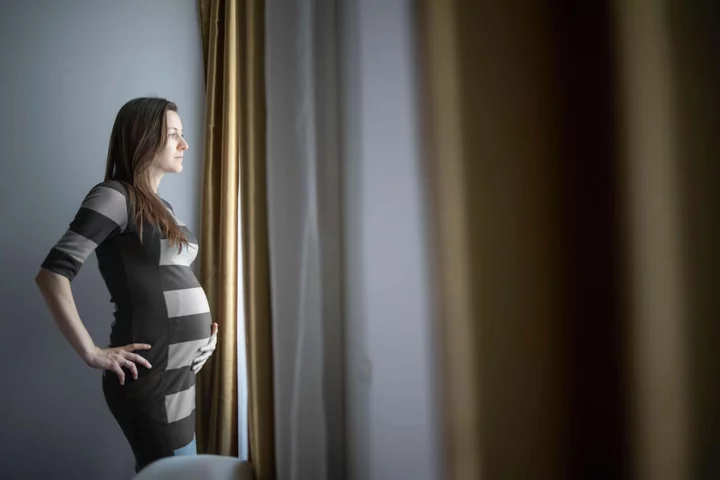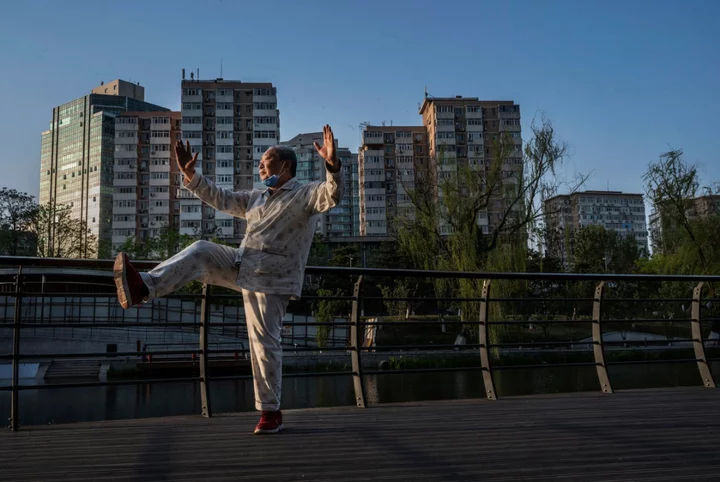
Neglecting women’s health at work could cost UK economy £20.2bn a year – analysis
Neglecting women’s health in the workplace could be costing the UK economy around £20.2 billion each year, analysis has suggested. In a new survey of 2,000 women, 68% said that they have dealt with health issues at some point in their career, whilst almost 29% felt their employers were not supportive. When factoring in specific health matters that relate to women, including endometriosis, fertility, menopause and periods, this figure increases to 36%, leaving 46% of women worried that their health could impact their career trajectory and 48% thinking they would be forced to resign. The study conducted by AXA Health in partnership with the Centre of Economics and Business Research (CEBR) also suggested that 83% of women have had their personal finances affected when faced with health issues. For instance, 52% of women have had to take time off, 22% missed out on a promotion and 20% settled for lower pay. Economic modelling from AXA Health and CEBR suggested that ignoring women’s health at work could be costing the UK economy £20.2 billion a year. From 90% of women struggling emotionally, 46% feeling helpless and 43% feeling less motivated at work, this issue has also had a huge impact on their mental health and wellbeing. “As this report finds, neglecting the health of women in our workplaces isn’t just a matter of compassion; it’s a serious economic oversight,” said Flick Drummond MP, who is serving as the co-chair of the All-Party Parliamentary Group on Women and Work. Dr Pallavi Bradshaw, deputy chief medical officer at AXA Health, added: “While companies certainly still have a way to go in addressing women’s health at work, there is promise in the increased willingness of women to discuss their health concerns with colleagues and managers.. “For example, our women’s health report found that 60% of women who talked about their health found their employers to be supportive, whether this be through time off, offering counselling or making adaptations to the workplace. “These developments are positive, but as we delve further into the findings, it becomes evident that concerns extend beyond just health issues. A striking 53% of the women we surveyed voiced that, within their workplaces, women often shoulder more unplanned responsibilities – such as caring for loved ones – than their male counterparts. “Furthermore, when reflecting on their own families, 39% of respondents revealed that they bear a greater burden than male family members when it came to unexpected caring responsibilities. This gender-based imbalance in unpaid labour not only perpetuates inequality but also places women at risk of being sidelined in their careers, overlooked for promotions, or compelled to work beneath their true potential.” Bradshaw said the economic impact of neglecting women’s health is “still significant”, and urged the need for “more education, robust workplace policies and talent retention initiatives”. The report suggested women who work part-time are hit even harder when it comes to health-related issues. It found that 61% are worried about having to leave their jobs prematurely, which exceeds the average by 19%. Only 17% of women who work full-time believe that conversations surrounding women’s health are not encouraged in their workplaces, but this increases to 23% for those who are employed part-time. According to a report conducted by The Royal College of Obstetricians and Gynaecologists, women represent 51% of the population and 47% of the workforce. Read More Nearly three-quarters of mothers feel invisible, study suggests The best ways to work-out in 22 minutes – as study finds this is magic number for offsetting ‘negative impact of sitting’ What crops will we be growing in the future, as climate change alters the landscape? As Rebecca Adlington shares heart-breaking miscarriage news: How to support others experiencing baby loss What you need to know about new research into treating cervical cancer How to do Halloween make up and still take care of your skin
2023-10-25 19:49

Nearly three-quarters of mothers feel invisible, study suggests
Most women feel ‘invisible’ and ‘unappreciated’ when they become mothers, new research has revealed. Instead of ‘having it all’, 72% of mums feel invisible and 93% feel unappreciated, unacknowledged or unseen once they’ve had children. Another 93% said that since having a child, their identity has been reduced to only being a mother. And the weight of expectation is huge, too, with 97% of mums questioned in the survey by the online motherhood community Peanut saying pressure is put on them to ‘do it all and be it all’. Plus, 94% believe they’re expected to put themselves last and self-sacrifice for their families, partners, jobs, and other responsibilities, so they can achieve what they feel is required of them. Nearly half of mums (46%) said they don’t feel supported by the healthcare system after giving birth, and 70% expected more support from society in general. As a result of this lack of support and invisibility, most women surveyed (95%) agreed there’s an impact on their mental health and wellbeing, with 86% having experienced anxiety, 82% feeling stressed, burned out or exhausted, and 80% feeling overwhelmed, or lonely and isolated. Other strong feelings identified by mums included irritability (78%), loss of identity (65%), feeling judged (66%), feeling unsupported (64%), guilt (63%), depression (55%), resentment (54%), worthlessness (50%), and neglect (24%). Women attributed the things making them feel invisible to unfair division of labour in the home, trying to juggle a career and childcare, lack of empathy and understanding from both family and everyone else, gaps in healthcare and mental health support, identity and independence struggles, hiding the pain of pregnancy loss, and general pressure from healthcare, education institutions and the media. Commenting on the findings, psychologist Dr Rachel Goldman said: “The invisibility of motherhood is a stark reality many face. The journey begins with frequent visits to healthcare providers, but once the child arrives, there’s a sudden gap, creating a sense of abandonment. Women grapple with overwhelming feelings of exhaustion and stress, only to confront rushed appointments where healthcare professionals don’t have time to adequately dive into concerns.” As a result of the research, Peanut has launched an Invisible Mothers campaign, featuring a State of Invisibility report, to draw attention to mums’ struggles and highlight ways to make them more visible and better supported. The report found mums think more empathy and gender equality will help them feel more visible, with 82% calling for flexible, family-friendly workplaces, 77% wanting equal and extended leave for both parents, and 71% saying an equal share of parenting tasks would help. Additional measures that will help mums, says Peanut, include more public toilets having changing facilities, additional resources for mental health support, support groups for both parents, and educational initiatives about gender stereotypes. The report also identified the most common unwanted questions that contribute to mothers’ feelings of invisibility, with alternative suggestions that women say they would prefer to hear. So instead of asking ‘How’s the baby?’, Peanut suggests mums are asked ‘How are you really – mentally, emotionally and physically?’, and rather than ‘Was the pregnancy planned?’, try ‘Are you excited?’, and change ‘How do you do it all?’ to ‘How’s the mental load?’. Goldman added: “It doesn’t take grand gestures to offer support. A genuine ‘how are you’ or ‘thinking of you’ can significantly shift perceptions, signalling to someone that they matter. Small changes or actions, like compassionate conversations, can have profound impacts. “By acknowledging and addressing these issues, we can begin to truly support motherhood.” Read More The best ways to work-out in 22 minutes – as study finds this is magic number for offsetting ‘negative impact of sitting’ What crops will we be growing in the future, as climate change alters the landscape? As Rebecca Adlington shares heart-breaking miscarriage news: How to support others experiencing baby loss What you need to know about new research into treating cervical cancer How to do Halloween make up and still take care of your skin Which houseplants best suit your star sign?
2023-10-25 19:28

Thermo Fisher cuts annual profit forecast on weak biotech demand
(Reuters) -Medical equipment maker Thermo Fisher Scientific on Wednesday cut its annual profit forecast for the second straight quarter, hurt
2023-10-25 18:46

Michelle Keegan likes to keep things 'simple' with her fashion choices
'Brassic' actress Michelle Keegan likes to keep things "simple" with her wardrobe choices and reveals the kind of fashion she prefers to stau away from.
2023-10-25 18:18

Nicki Minaj insists Pink Friday 2 release date change nothing to do with Lil Wayne and 2 Chainz's joint LP
Nicki Minaj hasn't fallen out with Lil Wayne and 2 Chainz over her album coming out on the same day as theirs.
2023-10-25 17:28

Geri Halliwell: 'I'm the laziest person with my skincare!'
Spice Girls star Geri Halliwell admits she is incredibly "lazy" when it comes to beauty care but isn't worried about trying to look younger.
2023-10-25 17:28

Princess Eugenie is often told she is 'much better looking' in real life: 'Is that a compliment?'
Princess Eugenie is often told she is "much better looking" in real life and is unsure if the remark is a compliment or not.
2023-10-25 17:24

NSYNC's Lance Bass hints more new music is to come from
Lance Bass has confirmed NSYNC are not done yet.
2023-10-25 17:22

Just 25 minutes of daily exercise enough to cut death risk from prolonged sitting, scientists say
Working out for just about 20-25 minutes daily may be enough to cut a heightened risk of death due to a highly sedentary lifestyle, a new study finds. Adults in developed countries spend about 9-10 hours on average every day sitting down mostly while working, with the highly sedentary lifestyle linked to a heightened risk of death. The research, published in the British Journal of Sports Medicine, found just about 25 minutes of daily moderate to vigorous physical activity (MVPA) eliminates the risk of high sedentary time. Individual data from four groups of people, who were fitted with activity trackers, was pooled for the latest study by scientists, including those from The Arctic University of Norway. Researchers sought to find out whether physical activity might modify the association between sedentary time and death, and what amount of physical activity and sitting time may influence the risk. The analysis included data from nearly 12,000 people aged at least 50, who had a minimum of 4 days of 10 daily hours of activity tracker records. The participants had been monitored for at least two years, and had provided details of potentially influential factors, including their sex, educational level, weight, height, smoking history, alcohol intake and whether they had current and/or previous cardiovascular disease, cancer and/or diabetes. About 5,950 people spent fewer than 10.5 hours sitting down every day, while 6,042 clocked up 10.5 or more sedentary hours. Data from death registries found that during an average period of five years, 805 (7 per cent) people died, 357 (6 per cent) of whom spent under 10.5 hours sitting down every day and 448 of whom clocked up 10.5 hours or more. Being sedentary for more than 12 hours a day was found to be associated with a 38 per cent heightened risk of death compared with a daily tally of eight hours. But this was only among those registering fewer than 22 daily minutes of moderate to vigorous physical activity, scientists said. The study found over 22 daily minutes of moderate to vigorous physical activity was linked with a lower risk of death. Higher daily tallies of physical activity were found to be linked to an even lower risk irrespective of the amount of time spent seated every day. For instance, an extra 10 minutes a day of exercise was linked to a 15 per cent lower risk of death in those spending fewer than 10.5 sedentary hours. This extended duration of workouts was associated with a 35 per cent lower risk among those spending more than 10.5 sedentary hours every day. Citing the study’s main limitation, scientists said the research was observational and can’t establish cause and effect. The study could also not account for other potentially influential factors like diet, mobility issues and general health. However, scientists said small amounts of MVPA “may be an effective strategy to ameliorate the mortality risk from high sedentary time”. Read More Study reveals why millions of women wake up at 3.29am Sports culture is ‘intimidating’ and putting people off working out, study finds Running could be just as effective at treating depression as medication, scientists find This Chinese martial art may slow down Parkinson’s disease The best ways to work-out in 22 minutes – as study finds this is magic number for offsetting ‘negative impact of sitting’ Mick Jagger, father of eight, explains why parenting is ‘not like riding a bike’
2023-10-25 15:25

This Chinese martial art may slow down Parkinson’s disease
Practicing one particular Chinese martial art could help curb symptoms and complications of Parkinson’s disease for several years, according to a new study. Regular practice of Tai Chi, which involves sequences of very slow controlled movements, is linked with slower progression of the debilitating neuro-degenerative condition, with patients likely to require lower doses of drugs over time, according to the research published in the Journal of Neurology Neurosurgery & Psychiatry. Parkinson’s disease is a progressive disorder affecting nerves and muscles, characterised by slowness of movement, resting tremor and stiff and inflexible muscles. It is the fastest growing neurological condition in the world, with two people in the UK diagnosed with the disease every hour, according to Parkinson’s UK. There are still no cures for the condition and while drugs can improve symptoms, they don’t treat all manifestations of the disease. Previous research had hinted that Tai Chi may have some positive effects on Parkinson’s patients, but whether this can be sustained over a long term isn’t known. In the new study, scientists, including those from Shanghai Jiao Tong University in China, monitored two groups of patients with Parkinson’s disease for more than five years from January 2016 to June 2021. Disease severity, medication use, age and education level were found to be similar in both the groups. One group of 147 patients practised Tai Chi twice a week for an hour, while another group of 187 patients continued with their standard care, but didn’t practise the martial art. Doctors monitored disease severity and progression in all the participants as well as their increases in the need for medication at the start of the monitoring period and in November 2019, October 2020 and June 2021. The extent of movement, mood, sleep quality and cognition as well other symptoms like the prevalence of complications like involuntary movement (dyskinesia), abnormal muscle tone (dystonia), hallucinations and restless leg syndrome were also tracked. Scientists found that disease progression was slower at all monitoring points in the Tai Chi group, as assessed by three validated scales to assess overall symptoms, movement and balance. They also found that the number of patients who needed to increase their medication in the comparison group was “significantly higher” than it was in the Tai Chi group. Researchers said cognitive function deteriorated more slowly in the Tai Chi group, while sleep and quality of life also continuously improved. However, scientists acknowledge that the study is observational and can’t establish cause and effect. Citing another limitation of the research, they said the number of study participants was relatively small. “Our study has shown that Tai Chi retains the long-term beneficial effect on [Parkinson’s disease], indicating the potential disease-modifying effects on both motor and non-motor symptoms, especially gait, balance, autonomic symptoms and cognition,” scientists concluded. Read More The 10 products to make 2023 your healthiest year yet Tai chi improves balance, mental health in elderly: study Non-invasive deep brain stimulation ‘could provide treatment for brain diseases’ Daily exercise for just 25 minutes may cut death risk from prolonged sitting Mysterious ancient ‘human face’ rock carvings revealed by receding waters in Amazon Bumblebees ‘prioritise getting maximum calories in shortest time’
2023-10-25 15:23

Olivia Colman and Dev Patel to star in horror romance Wicker
Olivia Colman is known for her wide range of roles and her upcoming film 'Wicker' is certainly unique.
2023-10-25 15:18

Liam Gallagher boasts joint John Squire album is better than The Beatles' Revolver
Liam Gallagher says his upcoming album with John Squire is better than The Beatles' 'Eleanor Rigby' and 'Yellow Submarine'.
2023-10-25 15:17
